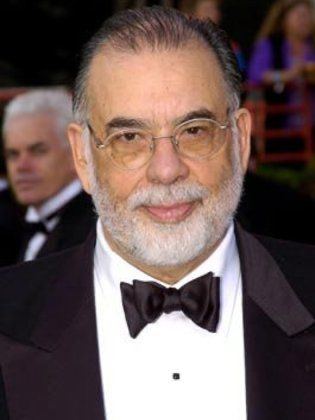Francis Ford Coppola, the renowned American director, has long declared his grand ambition to create Megalopolis, describing it as the culmination of
Francis Ford Coppola, the renowned American director, has long declared his grand ambition to create Megalopolis, describing it as the culmination of his unique cinematic style and artistic vision. Since the 1980s, Coppola has been contemplating and planning this project. Finally, he managed to finance and produce it independently, presenting his contemporary vision of a utopian city, with New York as the setting for this futuristic film.
Plot and Classification
Megalopolis belongs to the science fiction genre, narrating a modern Roman epic set in New York City. The metropolis suffers a catastrophic disaster that leads to its total collapse. In the aftermath, an ambitious architect takes on the challenge of rebuilding the city in an idealistic manner. However, his vision clashes with the harsh realities faced by the city’s inhabitants, who struggle with conflicts and challenges. Among them is the city’s mayor, who holds a contradictory perspective to the visionary architect, further intensifying the film’s central ideological and philosophical debates.
Production and Philosophical Themes
Coppola invested $120 million of his own money to bring Megalopolis to life. The film also weaves a complex love story between a woman and two men, each representing opposing philosophical views. One of them is her father, who has devoted his life to raising her with a classical perspective on society. The other is her lover, a progressive thinker who fundamentally contradicts her father’s ideals. This philosophical clash is vividly portrayed in one of the film’s dialogues, where the lover calls for moving beyond the “filthy past” in order to build a brighter future.
Cinematic Concepts and Theories
In Megalopolis, Coppola employs several cinematic theories and concepts, making it a truly unique work:
-
Dystopian Theory: The film presents New York as a city in ruins, in desperate need of reconstruction, embodying the dystopian concept of societal decay and collapse rather than progress.
-
Utopian Theory: Contrasting dystopia, the architect envisions rebuilding the city in a perfect manner, reflecting a desire to create a better and more just society.
-
Philosophical Cinema: The film delves into profound philosophical questions about the nature of an ideal society and how it can be achieved. It challenges audiences to reflect on the values and principles necessary for social harmony and perfection.
-
Structuralism: The movie highlights the conflicts between different social structures by presenting the opposing ideologies of the main characters, emphasizing the complexities of rebuilding a cohesive society.
-
Semiotics: Coppola heavily relies on symbolism and signs to convey the film’s deeper messages. The utopian vision and the decaying New York serve as metaphors for the battle between tradition and progress, between classical ideals and modern innovations.
The Film’s Message and Purpose
In various interviews, Coppola has emphasized that the film’s central question revolves around:
“Is the society we live in the only possible one? What if utopia is not a tangible place that can be built? How can we improve everything around us?”
This deep philosophical inquiry reflects Coppola’s artistic ambition and his desire to introduce fresh, innovative ideas into cinema.
Return to the Cannes Film Festival
With Megalopolis, Coppola returns to the 77th Cannes Film Festival, marking 45 years since he won the Palme d’Or for his masterpiece Apocalypse Now. Critics anticipate that the film will receive numerous awards, with some even speculating that it could serve as the grand finale to Coppola’s legendary six-decade cinematic career.
Cast and Performances
Megalopolis features an ensemble cast of prominent actors, including:
- Talia Shire
- Shia LaBeouf
- Adam Driver
- Nathalie Emmanuel
- Jason Schwartzman
- Grace VanderWaal
- Kathryn Hunter
- James Remar
Conclusion
Megalopolis stands as a testament to Coppola’s artistic ambition and visionary storytelling, showcasing his ability to reinvent philosophical and intellectual ideas within an engaging cinematic framework. The film masterfully blends human and philosophical challenges with elements of science fiction, making it a thought-provoking and compelling cinematic experience. Through its diverse concepts and cinematic theories, Coppola presents a complex and inspiring work that explores deep questions about society and humanity, cementing his legacy as one of cinema’s most influential filmmakers.
Hikmat Al-Baydani – Cannes Film Festival 2024 – Cannes77

COMMENTS